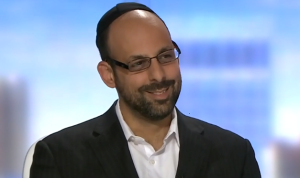by Shaya Silber
Fair dealing has always been a hot topic in copyright law. The line of what is permissible and what is not permissible is unclear in many circumstances, making this an area of law that is constantly debated. One of the more contentious fair dealing provisions, is the right to use copyrighted works for the purpose of “research or private study.” Ideally, copyright owners would like to be paid for every use of their works, and try to narrow the definition of what is considered research and private study. On the other hand, students, professors, and educational institutions would prefer a broader interpretation, thereby allowing broader use of copyrighted materials.
The Supreme Court of Canada (SCC) has settled some of this debate in Alberta (Minister of Education) v. Canadian Copyright Licensing Agency. The SCC was asked whether copying materials for classroom use was considered fair dealing. The SCC found that such use did fall within the definition of Fair Dealing in the Copyright Act and was therefore permissible. However, the SCC did outline certain qualifiers, and offered some clarification into the “fair dealing”.
The SCC first asked two questions. The first question was whether the use fell into one of the categories of fair dealing (click here for a discussion on fair dealing). The second question asked whether the usage was fair.
In determining whether the usage was fair, the court examined a variety of factors, including:
- The amount of the use: here the court examined the amount that was copied in comparison to the entire work; and
- Alternatives to the use: the SCC found that requiring students to purchase an entire book would be impractical where only a small portion of it was required.
Another interesting part of the decision was the court’s examination of who used the work, rather than who did the copying. For example, the SCC found that if a teacher makes copies of an article for his/her students, the teacher would not be infringing either. Requiring an entire classroom of students to individually make their own copies is simply not practical.
The Supreme Court clearly signaled its willingness to give the Fair Dealing provisions in the Copyright Act an expansive interpretation.


![By Akshayhallur (Own work) [CC BY-SA 3.0 (http://creativecommons.org/licenses/by-sa/3.0)], via Wikimedia Commons](https://zvulony.ca/wp-content/uploads/2012/11/Anonymous-80x80.png)
